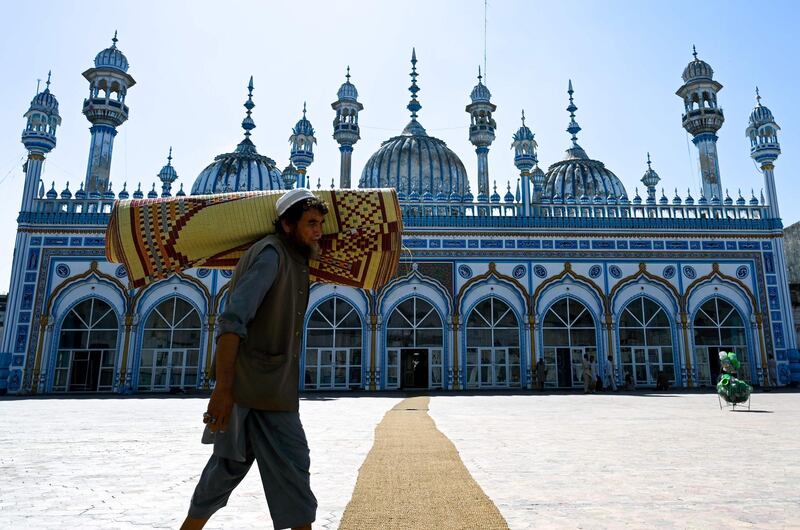Pakistan's science minister has been told to keep out of religious matters after saying scientific experts will draw up a calendar of future Ramadan dates, rather than relying on Moon-sightings by a committee.
Fawad Chaudhry, the Minister of Science and Technology, said a five-member committee of space and weather experts would draw up a 10-year calendar to end dispute over timing of religious events.
Mr Chaudhry announced the plan as Pakistan again received competing decrees on when the holy month should begin.
The official moon-sighting committee said Ramadan would begin on Tuesday, while a controversial cleric from the northern city of Peshawar said it began on Monday.
The new committee “had been constituted to prepare a 10-year calendar for Muharram, Eids and Ramadan to end disputes arising from the sighting of the crescent,” the state news agency said.
Members would be appointed from the national space agency, called the Pakistan Space and Upper Atmosphere Research Commission, and the meteorological department.
Work would begin almost immediately and the final calendar would have to be approved by the federal government. People would not be forced to adhere to it, Mr Chaudhry said.
Islamic scholars disagree on whether the Moon must be actually seen for Ramadan to begin.
The plan was attacked by the chair of the Religious Affairs Ministry committee that announces the start of Ramadan by co-ordinating sightings from across the country.
Mufti Munib-ur-Rehman, head of the Moon-sighting committee, accused Mr Chaudhry of being "unaware of religious matters".
He called on Prime Minister Imran Khan to rein in his ministers.
"Our announcements regarding the Moon have never been wrong," Mr Rehman told the Express Tribune.
"Everyone bears witness when the moon is sighted. If you are fond of making a lunar calendar, then go ahead and make a calendar of 100 years instead of just 10.”
Mr Rehman has in the past said the task is “a religious assignment and must be left to religious scholars to decide”, but also says he takes advice from the national space agency
His rulings are usually at odds with Mufti Shahabuddin Popalzai, of Peshawar's historic Qasim Ali Khan mosque, who true to form declared Ramadan should start in parts of Khyber Pakhtunkhwa province on Monday.
South-East Asian nations including Indonesia and Malaysia, and much of the Middle East, including Egypt, Iraq and Saudi Arabia, began their fast on Monday.
Millions more Muslims in India, Pakistan and Iran are due to mark the start of the lunar month on Tuesday, as different methods lead to different starting dates around the world.
Moon-sighting controversies have been common over the years. In the 1960s, the government twice went back on its original decision in a late-night reversal.
Other ideas to end Moon-sighting controversy between clerics in Pakistan have included the suggestion to simply follow what Saudi Arabia does.
With a population of 210 million, of which more than 96 per cent is Muslim, Pakistan's life is dominated by Ramadan for a month.
Advocates of a long-term calendar say it would allow better advance planning for businesses, schools and government departments.






